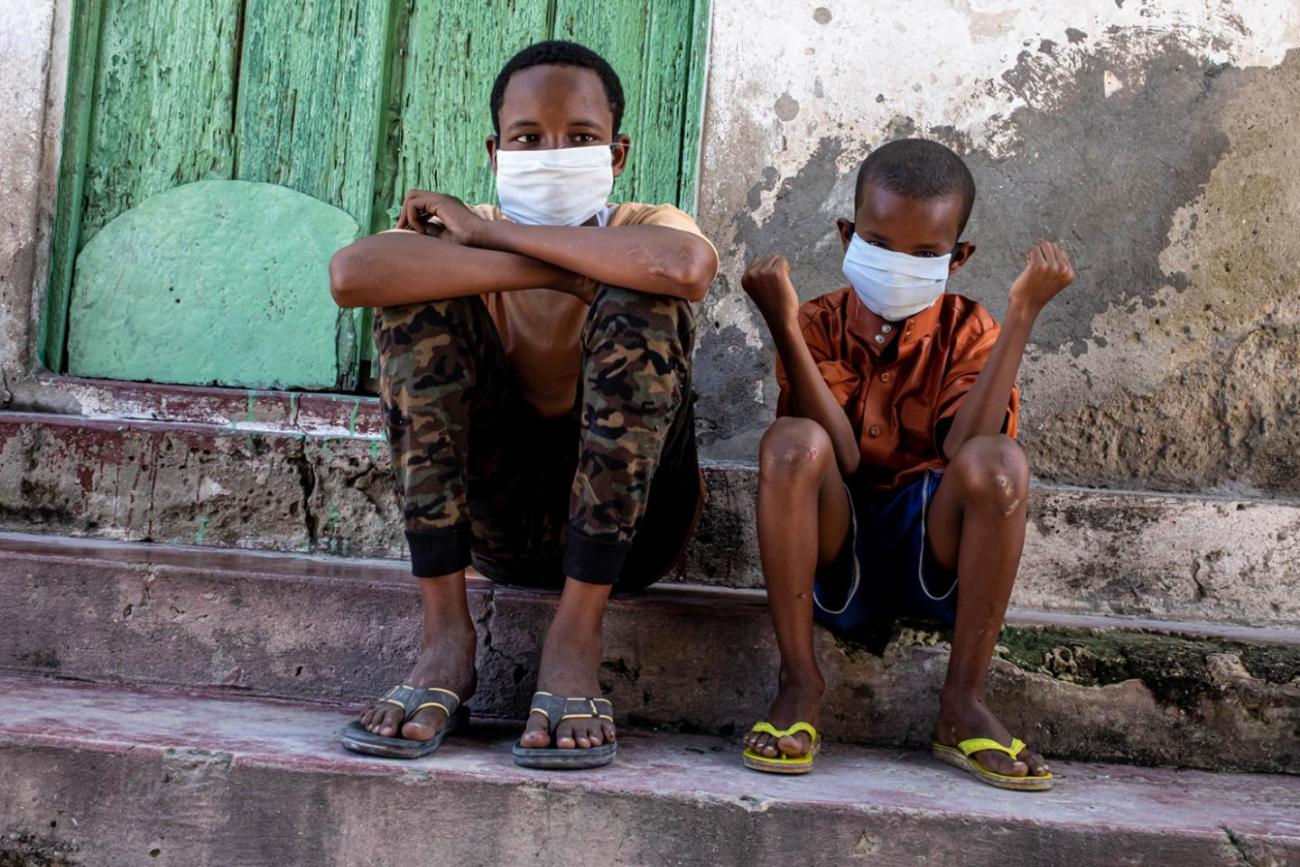Extraordinary commitment to protect every child

Social workers provide critical child protection services for vulnerable children.
“When I was growing up, I saw people helping others. It inspired me and I decided that I want to leave a mark by changing the world through my profession,” says 25-year-old Ayan Mohamed.
Today, Ayan is a social worker, deployed in vulnerable communities, to keep children safe and engaged during the COVID-19 pandemic.
“I meet two to three children daily at the child protection desk, in a safe house, somewhere on the street or during home visits. The children face different issues. Most face poverty. Some have been raped and some have undergone female genital mutilation. Others have experienced sexual, emotional or physical abuse. I also encounter children who have dropped out of school or who struggle with unwanted pregnancies,” Ayan says.
These types of situations can have a profound effect on children’s mental health and wellbeing. When trained social workers, like Ayan, intervene early on, they can prevent prolonged trauma and stress.
Each child is unique and there is no standard solution for helping them. Ayan and her colleagues, supported by the Women’s Action Advocacy Progress Organization (WAAPO), assess each situation carefully, with the consent of the children and their parents, and then develop a plan on how to help. They raise awareness about child protection and gender-based violence response services and explain how these services can be accessed. They can also refer children to critical health, safety or alternative care services and help children enter educational or vocational programmes. Part of their work is to also liaise closely with experienced case managers to ensure appropriate follow up and minimum standards of care are provided to survivors of abuse.
“We follow up every case closely and put all our resources to work to make sure children are protected,” emphasizes Ayan. “Depending on what the child has gone through and what type of risks they face, we also talk to the adults involved in their lives. This means talking to parents, teachers, neighbors and other community members,” Ayan clarifies.
“Social workers are crucial to recognizing risks, enabling access to protection services and making sure children are shielded from violence, exploitation and neglect,” says Brendan Ross, Chief of Child Protection for UNICEF Somalia. “They are present in the community and ensure vulnerable children are not forgotten. By working closely with families and other community members, including teachers and health workers, social workers can widen the protective environment for children and make sure children, subjected to abuse, are identified and receive the help they need in the shortest possible time,” he adds.
Since the onset of the COVID-19 pandemic, lockdowns and movement restrictions have been put in place, and schools have been closed. This has left many children stuck with their abusers, without a safe space. Other children have been cut off from the supportive relationships they used to rely on. There has also been an increase in reported cases of sexual violence against girls, indicating that the COVID-19 mitigation measures have left some girls and women vulnerable to domestic violence in their homes, sexual violence and rape, and other associated violations.
“This underlines that the work of the social workers is more critical than ever before,” Ross says. “They play an integral role in protecting children, helping them learn, and providing them much needed connection and affection,” he explains.
“The virus outbreak has made things more difficult, but we put all of our focus into our work,” Ayan says. “We apply simple precautions to protect ourselves. We maintain physical distance, wear masks, avoid crowds, cough into bent elbows or tissues, and keep rooms well ventilated,” she adds.
“Interacting with children, encouraging them to come forward, and being able to put a smile on someone’s face and knowing I played a part in making their life a little better are the most important and rewarding parts of my job – and it’s what keeps me going,” she says with a smile, committed to continue the work.
The Ministry of Women Human Rights and Development, UNICEF and partners have recruited, trained and deployed over 200 social workers across Somalia to provide vulnerable children critical child protection services and link them to health, social and legal services. The generous funding from the Government of Denmark, EU Civil Protection and Humanitarian Aid (ECHO), UK's Department for International Development (DFID) and United States Agency for International Development (USAID) has made this possible.
Link to the original story.


